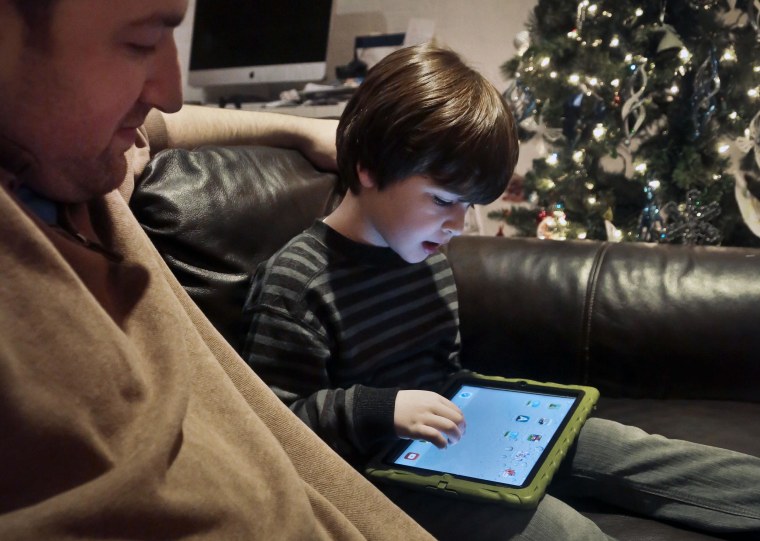Those fancy interactive e-books on tablets may not be the improvement over print that they appear to be: Research indicates reading comprehension is higher in kids reading plain old paper books — but that doesn't mean e-books don't have a place in education.
The New York Times reports on ongoing research by Jordan Schugar and Heather Ruetschlin Schugar of West Chester University of Pennsylvania; the couple have been comparing the reading habits of grade-schoolers in e-books and print for some time. Their latest findings were presented at the annual meeting of the American Educational Research Association.

What the Schugars found is that e-books can, at worst, result in far lower reading comprehension as kids skip whole pages in search of noise-making character illustrations, interactive passages and other distractions.
Yet it's clear from their research that such interactive features can be good as well: a timely noise might hint at the meaning of a difficult sentence, and "read to me" and dictionary features let a kid keep reading without help from an adult.
As tablets and other touchscreen devices become more and more common (and children become familiar with them earlier and earlier) the benefits and drawbacks of this kind of content will grow more important. Researchers like the Schugars are working on finding the best methods for teachers and parents to integrate rich media into their kids' learning experience.
